By Petrit Velaj
Part Six
Memorie.al / During the years of World War II, the waves of the Anti-Fascist War swept us away without us realizing it. We were schoolmates, like city boys, me, Bajram Tushi, Hajredin Bylyshi, Hiqmet Buzi, Mumin Selami (Kallarat). Amidst the dreams and desires of the romance of literature. With these friends of mine, I have many memories. Our parents, our mothers, honest and generous people. A patriotic mother, mother Tina of Tol Arap, the well-known patriot, gathered us around her like a nest of birds. She was the mother of my childhood friend, whom we called: “the flower of Vlorë youth”, Vllas Arap. I think Mumin Kallarati gave this epithet to Vllas. I associated with every friend and comrade who was honest and sincere. This united us in our society with our peers: Hazis Sharra, Qemal Xhyheri, Xhemil Beqo, etc. Even though our opinions were different, we went together to picnics, play games and go to the cinema. A meeting at Lef Sallata’s house. Suddenly, politicized thoughts erupted in our society. The debate flared up with the young revolutionary, Kastriot Muço. He was an honest man. After four or five days, Kastriot said to me: “Petrit, when are you going to hold the youth meeting in the Çerekçie neighborhood? In the city’s activity, you were elected responsible for the neighborhood’s youth group”. After a few days, we organized the youth meeting in the “Çerekçie” neighborhood.
Continued from the previous issue
The Çiftelit in those years in the Burrel prison, were performed like funeral music. There were six of us in the room. Banush Goxhua called us; “The pecigrosi”, that is, the “big ones” of the political prisoners. I remember that in December 1946, we ate bread in the room together with Kudret Kokoshi, Rexhep Sulo, Tahir Hoxha. Next to me was Koço Kota, who had been prime minister of the Zog government, an honest but scary man. He had been shaken a little more in prison. After a few days, he also ended up dying in torture. In the last days of December, Qemal Vrioni asked Kudret Kokoshi to compose some verses for the New Year.
That night, Kudret thought for a long time. The next morning, Kudreti came out in front of the other prisoners and recited: “A year has passed, it has passed/ sadness overwhelms us: in each other’s eyes/ we read our thoughts. With the year that passed/ the suffering did not end/ but today that this one has come to us/ it is shaking us with hope…”! Those present: Xhevat Korça, Atif Golja, Tefik Mborja, Koço Kota, Ali Maliqi, Patër Mëshkalla, Leonidha Kume, Tahir Hoxha, Dom Shtjefen Kurti, Gjon Shllaku etc., applauded for a long time.
In the iron turrets of the windows, the snow thickened its layers. The guard from outside, frozen by the ice, shouted: “Officer of the guard, relieve me! I am freezing from the cold”! But the executioner Rëmbeci, dressed in his best fur coat like in the steppes of Russia, did not even want to know, neither for us who were in the cells, nor for the guards who guarded Burrel’s “Hell”. Kudreti’s poem remained in our minds. In response to this poem, Qemal Vrioni expressed himself thus: “Gentlemen, be patient because this government of Lubi will not last more than ten years. I do not know what the days of August will tell us about it…”!
Around March 1947, Sadiku Borua received a telegram from his family in Vlora, where they wrote: “Metlliu, your brother, was killed in Sevaster”. All of us who knew him felt sorry for him. Temo Shehu from the village of Sevaster was at his bedside. He said to him: “Sadik, brother, don’t rush, wait for the details…”! Less than a week later, Temo’s sons came and they learned that, in Sevaster, at a dinner, Major Saliko Sulo from Velça, allegedly by mistake, while drinking, hit the kerosene lamp. In the darkness, he had also hit Metlliu, his cousin, with a cobra.
On May 10, 1947 – in the pot of food, the food was onion soup, they had thrown a medicine to settle our stomachs. There was no peace in the entire prison that night. We all ran around the rooms because the guards, despite our screams, would not open the doors for us. This was one of the inventions of Vangjel Rëmbeci who, as much as he was cowardly, was also cunning. His mind was filled with only evil, while Banush Goxhua, as ignorant as he was, tried to make himself look smart. He tried to make fun of us and be funny, but he always ended up as a fool.
In 1948, when the plenum of the Central Committee of the Communist Party was held and Koçi Xoxe was declared an enemy of the Party, Banush Goxhua gave a speech in front of the prisoners, where he said that; “the cause of the misfortunes of the political prisoners was Koçi Xoxe”. We laughed. This, the “olive grower of the Agali of Vlora” and the “worker of Xhemil Meço’s oil factory”, forgot that he himself was the one who blindly carried out the orders of “The Leopard”, Koçi Xoxe.
It was this beast that isolated in the dungeons for death: Kudret Kokoshi, Tahir Hoxha, Petrit Velaj, Hysni Alimerko, Engjell Kokoshi, Beqir Jazo, Jazo Ademi, etc., whom he had known since his childhood. They isolated us in cell no. 14. A large room, with a high threshold, into which they poured water to keep it more humid. In that cell we stayed: Xhevat Korça, Koço Tasi, Kudret Kokoshi, Petrit Velaj, Mihal Zallari, Xhevdet Kapshtica, Gjergj Kokoshi, Isuf Selmani, Sami Bitincka, Ali Maliqi, Hasan Xama, Andon Kozmaci, Aleksandër Çurçia, Hivzi Xhilaga, Novruz Nivica.
Do you know what we did? Just as Kudret Kokoshi told us, as we were barefoot, we started to dance. We danced in the water. The guard, who saw us through the hole in the door, immediately reported to the directorate. The director reported to the Head of the Internal Affairs Branch. After just twenty minutes, they were there. They opened the cell door and found us dancing. Banush Goxhua, when he saw us like that, screamed with a start: “Do you want to express your hostility, you traitors of the Fatherland, with dance?” But our great silence was an open insult to him and the regime in power, because the great Goetia said: “Words are silver, silence is gold…”!
I often thought in my cell about Banush Goxho, whom I had been friends with during the years of World War II. We were also in an anti-fascist group in Ujët e Ftohtë, which also included Koço Papalilo, Miho Konomi, Selahedin Velaj, Skënder Çoba, Qemal Toto, Veiz Banushi, Shuaip Meto, Pasho Meto, Bebi Konomi, Spiro Konomi, Adem Lamani, Daut Lamani, and other honest boys from the Ujët e Ftohtë neighborhood. Since then, Banush Goxhua, at every meeting, appeared with his profile:
“Let’s kill, let’s assassinate, let’s ambush…”! When I saw him in front of me in prison, my flesh shuddered from his ignorance. During the year 1947-1948, 720 political prisoners were buried. It was this same Banush Goxho and this Vangjel Rembeci who ordered the guards to accompany the bodies with dancing. I remember a fact that I cannot leave without describing. We were taking the body of Fuat Voshtima to the famous Cherry Tree of Burrel. We were: me, Patër Marshalla, Anton Kosmaci, Xhevdet Kapshtica and Ali Radhima. The Cherry Tree of Burrel remained like a tombstone of the cemetery of the victims of communist terror.
While taking the body of the executed, we saw how the guards danced, accompanying us. Likewise, another time, I, Koço Tasi, Petraq Isaku and Kudret Kokoshi, were assigned to take the body of a young man, Hasan Prifti, from Dibra? Our coffin was a blanket. The guards accompanied us by dancing. When we went to the cherry tree, what did we see; The body of Fuat Voshtima, who was buried three days ago, had been dragged out of the grave by dogs.
The prison director ordered us not to dig graves more than a palm and a half deep, close to the surface of the ground. One day, when the old man from Vlorë, Sulo Shehu from Sevaster, died, I remembered his words, which he had said to me: “Petro, take care, son, I will die, because my manhood cannot bear the tortures of these beasts…”! Sulo Shehu was like that hen that gathered birds around her. That’s how we also gathered around him. Even the funeral ceremony of Sulo Shehu, did not fail to take place under the funeral sounds of the prison soldiers and policemen.
The soldier with the çifteli, began the verses of his song right there, as soon as Sulo’s funeral was over. From the verses of that song, which reminded us of death, the other prisoners were embedded in my mind like nails: “Who will kiss death – o/ Xhevdet with Koço – o/ Petrit with Kudret – o/ Padër Mëshkalla who loves/ their turn will be tomorrow – o…”! It was about us: Petrit Velaj, Koço Tasi, Kudret Kokoshi, Padër Mëshkalla, Xhevdet Kapshtica etc.
To be honest, I myself did not understand where the endurance and optimism of hope came from. Even Dante advises: “You who enter here at the gates of Hell – lose all hope”. Once Gjergj Kokoshi, who was Minister of Education in the years 1945-1946 (after Kristaq Cipo), said to me: “Petro, why do you think? Why are you sad? Armed or simple travelers, let death take us, but until the end, hope or courage”. Continuing the conversation, he said to me: “Petro, remember the verses of Alfred D’Vinci, in his masterpiece ‘The Death of the Wolf’, where he says: ‘To groan, to cry, to pray, is the same meanness. Energetically do your heavy and long duty. On that path that fate willed and called you, then finally, suffer and die silently, in silence…'”!
Gjergj Kokoshi often told me: “You Petro, be a hammer, I advise you never to become an anvil”. With Gjergj Kokoshi, I spent 18 months isolated in cell number 3. I have remained in my mind with the sparks of those sufferings and the wise words of Mr. Andon Kozmaçi, former Minister of Justice, and of His Grace Visarion Xhuvani, head of the Albanian Autocephalous Church.
Visarion Xhuvani’s words were like a mist coming from the heavens of the gods. “My son, listen to our greeting, listen to these words, because you are young and can better convey them to the generations to come…! The Greeks shot me in the Monastery of Zvernec, near Narta of Vlora, when I was bathing in the morning.
The bullets hit the mirror and the wood of the well. In life, I have also walked many evil paths. They insulted me at the Eleventh Conference in London, in 1931. They even wrote in the press that; this Albanian does not know how to eat the fish of the Archangels… But, everywhere, I stood strong, because I defended Albanianism…”! When even Koço Tasi, the former Minister of the Directorate of the Democratic Government of Fan Noli, was advising me as a younger man, he would tell me: “Amanet, my boy, never trust communists. They only lie when they are asleep. Honest communists are victims of time. Criminals – communists, should never be forgiven… They should be brought to justice…”!
A proverb of our people says: “If you have mercy on the wicked, you have betrayed yourself”. I will never forget lawyer Avdullah Rami, from Tatezati in Gjirokastra. I ate with him for some time in Burreli prison. A very honest and noble man. In prison he maintained a truly heroic stance. He was a promoter of Albanian nationalism in prisons. He used to tell me: “Petro, they can bend us, but they can never break us on our way…”!
When I think of his portrait, next to him stood Myslym Çarçani from Fushëbardha, who was sacrificed in Burreli prison. In isolation, I cannot take my eyes off the portraits of the honest nationalist Sabaudin Resuli from Lushnja, Ali Maliqi from Dibra, Et’hem Sara from Kavaja, Ivzi Xhilaga from Dibra. Among them, like a vision, the 15-year-old boy, Jahja Kurti, who was sentenced to death, remained before our eyes. The wise conversations of the “old man of the sea”, Idriz Bule or, the patriot Idajet Lekdushi, who abandoned America and came to Albania, to give his contribution to the progress of the motherland.
Next to him stood Sali Vuçiterni, the believer with Islamic culture. Above all of them, the luminary of Albanian culture, Mr. Arqile Tase, shone. For thirty-some years he had been Director of the New York Library. He came to Albania in 1939, to help Albanian culture. The communist regime gave him the reward: death in Burrel prison. In isolation, boys full of energy and Albanianism, such as: Yzedin Kurti, Qani Zdrava, Ylber Starova, Klito Lamaj, Engjell Kokoshi, Avni Vinçani, Abdyl Kadiu, Sefer Meçe, Seit Çeprrati…!
Like a bouquet of flowers of Albanian youth, with great ideals in their minds and hearts. When Seit Çeprrati spoke, the others listened: they had shot two brothers, Hamdi Çeprrati and Muço Çeprrati…! And here he was, exiled to the Burrel prison, where Seit was too. Only from the village of Treblova in Vlorë, there were three good people: Faik Abazi, Estref Cize, Velo Lamaj…! Every time they went out into the prison yard, they passed through a narrow corridor of policemen. They hit us with sticks and kicked us.
When he felt that death was coming, Sali Vuçiterni had a meeting with his family. After the meeting, he distributed all the food they brought to the other prisoners. He called me to his bed and said: “Petro, I beg you to have a son, Nazmi. I have an only son. He is in Argentina. He is a doctor. If you ever see him, I will tell you the suffering and hardships of our lives.” He sat for a while; his eyes fixed on the door of the prison cell. He squeezed my hand tightly and said: “When I die, my son, you will say to me the religious prayer that I taught you. Repeat the words three times. Then my soul will rest in peace.” Sali Vučiterni was 91 years old.
It must have been the end of October 1949. He died there in the afternoon. I took him in my arms and with my head towards the sky I prayed: “Allah with Salih Allah seid…”! I looked at his portrait sculpted by suffering. Two corpses in a cell. One dead, one alive. When I went out to the bathroom in the corridor during the bathroom hours, Kudret Kokoshi and some others asked me if the command had called me, to become their spy and take the others’ necks. – “The Prison Directorate and the Internal Branch of Burrel have been trying to recruit from our comrades in prison for more than two weeks.
The one you see standing is the ‘master’ who regulates these ‘crafts’. Brother, we don’t have this in our tribe…! I will stand as befits Albanian patriotism…”! I felt great anger from the executioner’s stance in front of me. In front of me, my beloved brother was also standing. For him, my soul was burning, to hug him and squeeze him tightly, to be affectionate, because we had not seen him for a long time.
But, “Mephistopheles” Banush Goxho, did not let us meet, at least to shake each other’s hands. As he was leaving, my brother said to me: “Brother, Petro. It is better for you to leave here a dead, but honest corpse…”, and he left with tears in his eyes. That is how my brother and I parted ways. We met between the bars of Burrel prison. He left and we never saw each other again. In 1950, Manush Muftiu, this black man from Vlora, prepared the ordeal of death for my brother. Hulusiu was arrested in Tirana, on the alleged charge of; “calling for war and agitation and propaganda”. It was the time after the bomb incident at the Soviet Embassy in Tirana.
My white brother was executed, by death, by shooting. One day in prison I picked up the newspaper “Zëri i Popullit” and on its pages I read the name of my brother, who had been arrested. After the arrest, I saw his name again, among those sentenced to death. I am not at all sorry for my own suffering, as much as for the death of my brother, who was shot innocently. He was 39 years old. He left behind his noble wife, Bejxhe, and his children Bashkim, Vera, and Dhurata. At that time, these verses were born in my soul: “You died from the bullets of the wicked, brother/ because your heart held great hopes/ Gone like a star that leaves behind a vision/ like a Kaninë flower that leaves behind a stench. / This soul of mine was seriously wounded/ why the black bile of life did not end for me”!
Year 1951. In the prison yard, the inspector of the Camps and Prisons of the Ministry of the Interior, Faslli Jaho, from my village of Kanina, gathers us. He reads us the list of prisoners and says: “The state also needs your contribution. You will work on the translation of world literature.”
We were Koço Tase, Kudret Kokoshi, Andon Kozmaci, Arqile Tase, Petrit Velaj, Et’hem Cara, Arshi Pipa, Tasim Spahiu; Sbaudin Resuli, Xhevdet Kapshtica, Sami Bitincka, Foto Bala, Ylber Starova, Mihal Zallari…! That very day they transferred us to the new Tirana Prison. There we also found other prominent intellectuals of the country: Xhemal Frashëri, Osman Kazazi, Myfit Bushati, Hamit Keçi, Reshat Karapici, Haki Karapici, Ebehet Bega, Nusret Sazani, Nexhat Tartari, Bujar Doko, Xhevat Kallejxhiu, Haki Tafai, Beqir Ndou, Fiqiri Llagami, Gjergj Bubani, Namik Kacaruhu.
The next day they gathered us in a large hall and told us which were the works of world literature that would be translated into Albanian. The working groups were divided into three groups. I was in a group with Tasim Spahina and Arshi Pipa. The work was divided like this: one translated, the other wrote and edited, the third corrected.
Every week we took turns replacing each other. This work lasted almost two years. Our group translated: “The Great Conspiracy Against Russia”, “Lost Illusions”, Goethe’s “Faust” and other works needed for the publishing house and Radio Tirana. In charge of all the work, we had Mr. Beqir Ndou, Fiqeri Llagami. Both had correctness and respect for our work.
Fiqeri Llagami had graduated in journalism in Paris. The only reward for this work was our flogging, one moonless night, in October-November 1952. Then they took us to Burrel prison. There we were met by another executioner, the “toothless” Xhipe Mersini, the new prison director. A friend of mine rightly said that Xhipe was “Hugo’s Quasimodo”. As soon as we got out of the cars, he came up to us and said: “Why, take the door, don’t you know how to translate…”?! Memorie.al




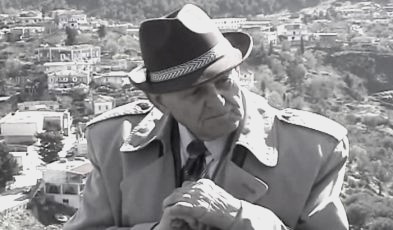
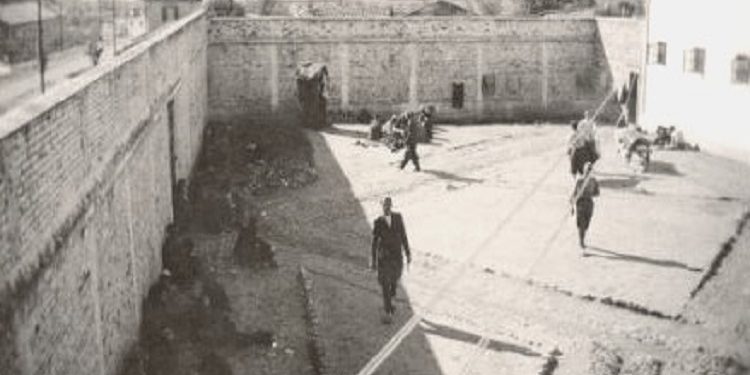
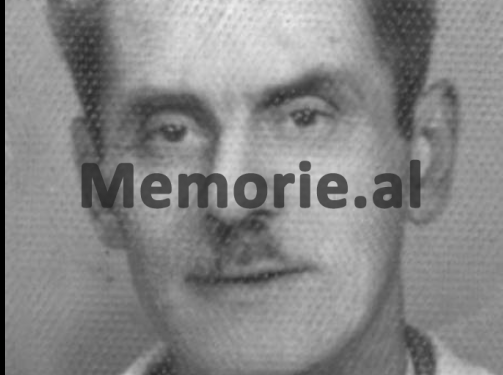
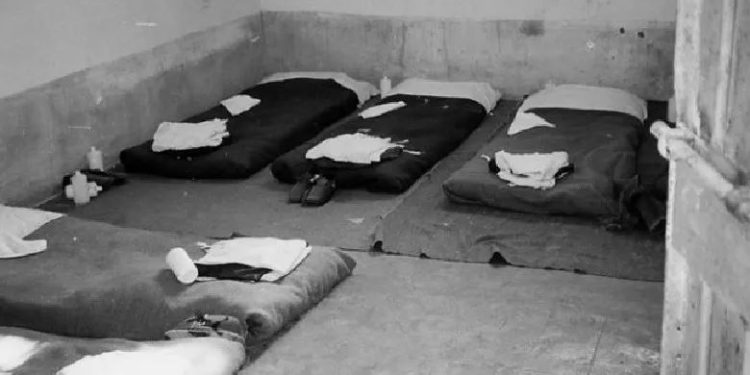
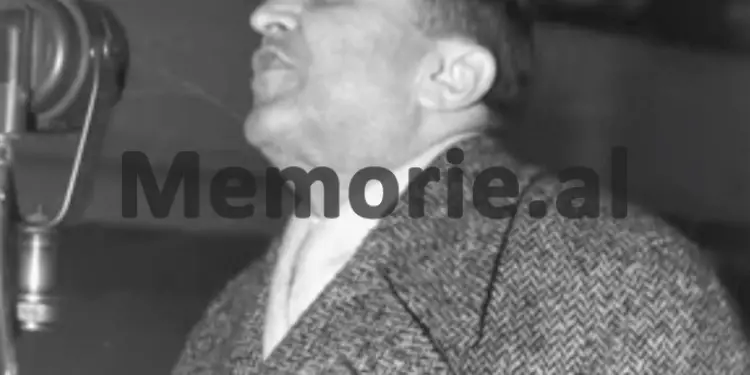
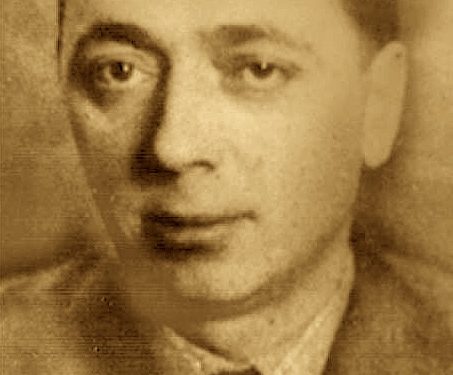
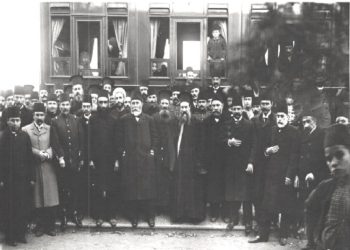
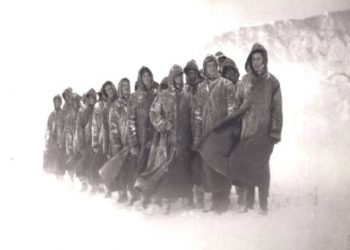

![“When the party secretary told me: ‘Why are you going to the city? Your comrades are harvesting wheat in the [voluntary] action, where the Party and Comrade Enver call them, while you wander about; they are fighting in Vietnam,’ I…”/ Reflections of the writer from Vlora.](https://memorie.al/wp-content/uploads/2025/06/admin-ajax-4-350x250.jpg)


